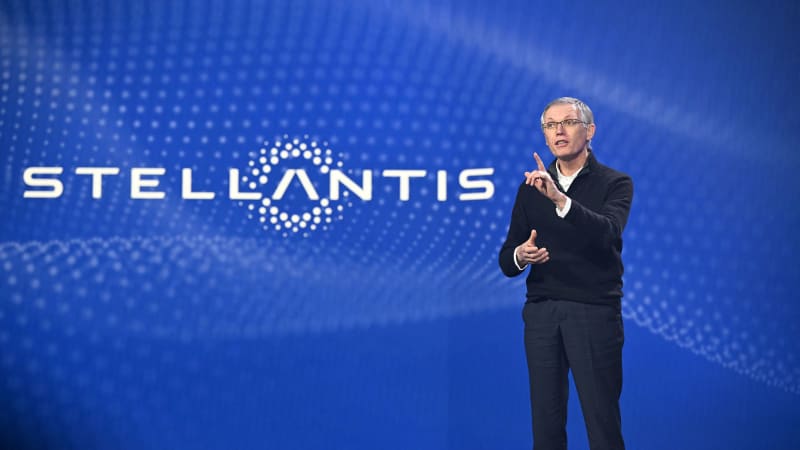
MILAN — The automotive industry will have to reduce the weight of EV batteries by 50% in the next 10 years to make electrification environmentally meaningful, the head of Stellantis said on Wednesday.
Stellantis CEO Carlos Tavares said during the automaker’s Freedom of Mobility Forum that making a battery pack for an electric vehicle (EV) with a “decent range” of 400 kilometres (250 miles) now took on average 1,000 pounds, or around 500 kilograms, of additional raw materials compared to a traditional car.
“From an environmental standpoint … I don’t think it makes sense,” Tavares said.
The Stellantis CEO said the auto industry, based on new science, needed to achieve a “breakthrough” in terms of cells’ power density.
“I think that’s on the way. I think over the next decade we’ll be able to reduce the battery pack weight by 50%, hence reducing by 50% the use of additional raw materials against a conventional vehicle,” he said.
He added this would also help solve the problem of lithium scarcity, a key element in most of today’s batteries.
Stellantis’ Freedom of Mobility Forum – which on Wednesday held its second annual session – was set up by the group after it decided to leave European auto lobby group ACEA at the end of 2022. It is designed to promote discussions with stakeholders over covering the problems and trends of mobility and their implications for global warming